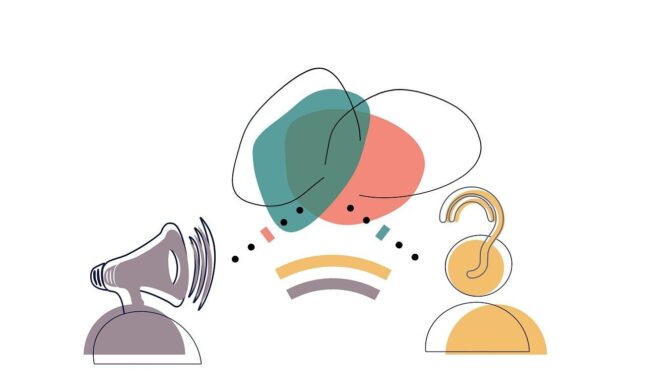Sneak peek: Academic conference Speech Prosody 2024
Priscilla Lam shares with us her thoughts on Speech Prosody 2024, a biennial international conference to be held in Leiden next summer: What is it about? Who is involved? What can we look forward to?
Have you ever imagined what language communication would be like without variation in pitch, duration and loudness, in words and sentences? These are just some of the many questions that researchers in the flourishing field of speech prosody ponder.
In English, the sentence “Alexa went to school today” can have (at least!) two completely different meanings, solely by varying the pitch melody of the sentence. When uttered in a relatively flat pitch, the sentence is interpreted as a statement. However, when the very same string of words is uttered with a rising pitch towards the end, it becomes a question. This is an example of intonation, the use of pitch variation at the utterance level to signal contrastive meaning.
Now, let's take another example. Imagine speaking to an adult versus a child, or an infant. Do you hear yourself speaking differently? Research has shown that in languages such as English, French and German, adults tend to raise their pitch and expand their pitch range when speaking to children, compared to when speaking to adults. Beside pitch, rhythmic properties such as slower speech rate and shorter utterances are also found to be characteristics of child-/infant-directed speech in some languages.1
Sentence intonation and child-directed speech are only two of the many aspects of speech communication in which prosody, the variation of phonetic properties such as pitch, duration, loudness and voice quality, is manifested. Just like consonants and vowels, prosody plays an important role in language communication and serves the function of expressing different meanings.


Beyond these two examples, there are countless ways in which prosody is used in languages across the world. Researchers curious about prosody explore it from a range of perspectives and methods, and through the lens of different languages, thereby contributing to a multifaceted body of knowledge on human language prosody. As a thriving field of research, prosody is the spotlight of a number of regularly held conferences and workshops. Speech Prosody is one – and the largest – of them.
Speech Prosody: a biennial gathering for speech prosody researchers from around the world
Supported by the Speech Prosody Special Interest Group of the International Speech Communication Association, Speech Prosody is a recurring international conference that showcases research on all aspects of language prosody. Past Speech Prosody conferences took place in cities such as Lisbon (Portugal, 2022), Tokyo (Japan, 2020), and Poznan (Poland, 2018). The 12th edition of Speech Prosody will be held in Leiden from 2 July to 5 July 2024.
Every other year, 300-400 researchers gather at Speech Prosody to share their recent research related to prosody, and engage in discussions on the latest development of the field. For a junior researcher like myself, Speech Prosody is a really unique opportunity to gain exposure to the vast world of prosody research, as well as to meet researchers from diverse academic backgrounds.
A range of exciting events
So, what exactly will happen over the four days of the conference?
First, there will be numerous regular sessions filled with presentations. Speech Prosody 2024 has four subthemes: prosody through the lifespan, typology and cross-linguistic variation, individual and social variation, and contact-induced variation. Throughout the conference, there will be thematic sessions that focus on these subthemes, as well as non-thematic sessions. These sessions will feature presentations that address different topics in prosody research, ranging from linguistic, psychological, social, to technological. Specific topics include tone and intonation, prosody of sign language, prosody in language contact, cognitive processing and modelling of prosody, and forensic voice and language investigation, just to name a few. There are no limitations on the language under investigation, nor on the research method. Contributions on under-studied languages, with interdisciplinary research methods, and/or by junior researcher are especially encouraged. So you can definitely expect a wide variety of presentations in the regular sessions!
Besides the regular sessions, the conference also features a series of special sessions, workshops, tutorials, and keynote speeches. The keynote speakers have already been announced on the conference website, and they are Shelome Gooden (University of Pittsburgh), Silke Paulmann (University of Essex), Melissa Redford (University of Oregon), and Kristine M. Yu (University of Massachusetts Amherst). As the interests and expertise of the four invited speakers represent an incredible mix of research perspectives and approaches, the four keynote speeches will surely paint a fascinating multidimensional picture of recent developments in the field.
Last but not least, as with any other academic conferences, there will be plenty of time and opportunities for researchers to connect with one another. For some, it will be a place to see familiar faces and catch up with old friends. For others, it will be a great opportunity to meet new people and expand their academic network.
Conference organization in full swing
Even though Speech Prosody 2024 will be held in Leiden, the organization team extends beyond Leiden University. The conference is jointly organized by the Leiden University Centre for Linguistics (LUCL), the Centre for Language Studies (CLS) at Radboud University, and the Institute for Language Sciences (ILS) at Utrecht University.
Now, you may wonder, how many people are involved in making this conference happen? For a conference of this scale, the organization work requires the hard work and dedication of a large team. First, we have the Organizing Committee, which is chaired by Yiya Chen (Leiden University) and co-chaired by Amalia Arvaniti (Radboud University) and Aoju Chen (Utrecht University). The Organizing Committee is supported by more than 30 researchers devoting their time and organization skills: Local Organizing Committee, Student Organizing Committee, Technical Program Chairs and Advisory Committee. On top of that, there is also a team in charge of the communication of all conference-related matters. As part of the Student Organizing Committee, I look forward to not only helping with the organization of the conference, but also to learning more about the work done behind the scenes to make the magic happen.
To give you a glimpse of just some of the organization work going on right now, the proposal deadline for special sessions, workshops and tutorials has passed, and abstract and paper submissions are open. In other words, researchers across the world who wish to share their latest research at Speech Prosody 2024 are now working hard on their abstracts and full length 4-page papers. After the abstract and full paper submissions are received between late December and early January, the Technical Program Chairs will review the submissions. Decisions will then be announced in late February, and the conference program will become available shortly after.
If you are like me and cannot wait to find out more about the conference program, the topics of the keynote speeches, and other information about the conference, do stay tuned for updates on the Speech Prosody 2024 website!
1Soderstrom, M., & Bortfeld, H. (2020). Prosody in Infant- and Child-Directed Speech. In C. Gussenhhoven & A. Chen (Eds.), The Oxford Handbook of Language Prosody (pp. 574–581). Oxford University Press. https://doi.org/10.1093/oxfordhb/9780198832232.013.38
*Images by Gerd Altmann from Pixabay


